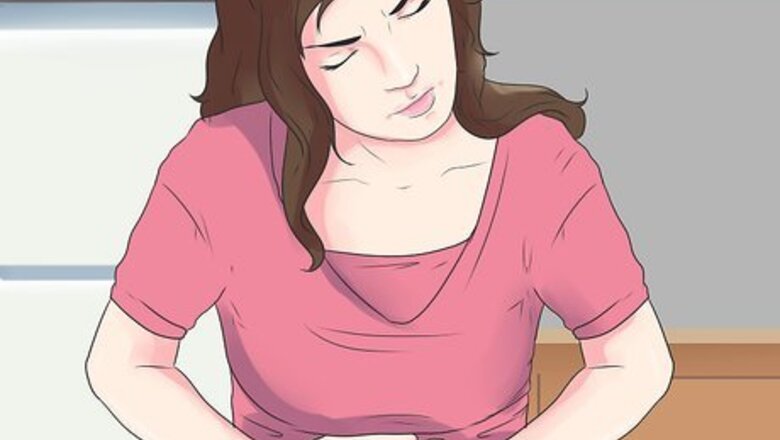
views
Recognizing Symptoms
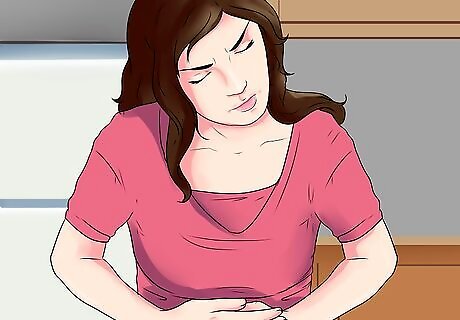
Pay attention to pain in your abdomen anywhere between your breastbone and your belly button. The pain can vary in severity and duration, lasting anywhere from a couple of minutes to several hours. It often occurs between meals as your stomach empties and could be described as a burning, stabbing or aching pain. The extent of the pain will depend on a number of factors including your age and the location of the ulcer. Often pain caused by ulcers can be temporarily relieved by eating foods that buffer the acid in the stomach, or by taking an over-the-counter antacid medication. If your stomach pain is caused by ulcers, flare-ups may occur at night and whenever you are hungry.
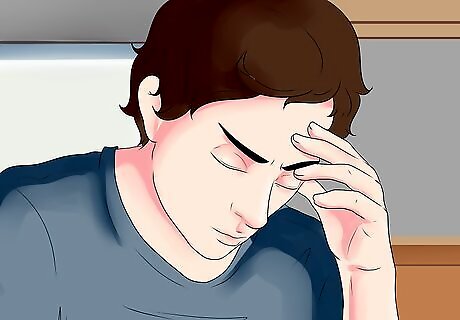
Watch for other symptoms of ulcers that sufferers have reported. All of these symptoms don't occur for all people. That means you may experience just a few symptoms, or a combination of any of them. An increase in the amount of gas and burping. A feeling of fullness and an inability to drink a lot of liquids. Being hungry a couple of hours after eating a meal. Mild nausea, most common on first waking in the morning. An overall feeling of being tired and not feeling well. Loss of appetite. Weight loss.
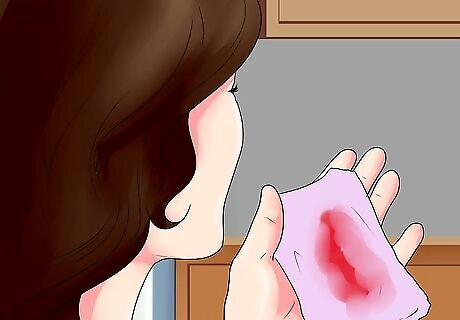
Recognize the symptoms of a severe ulcer. If left untreated, ulcers can cause internal bleeding and other problems, leading to a medical emergency. Vomiting, especially if it looks like coffee grounds and/or if blood is present, can be an indication of advanced ulcers. Dark, tarry or pasty stool may also be a sign of severe ulcers. Bloody stools.
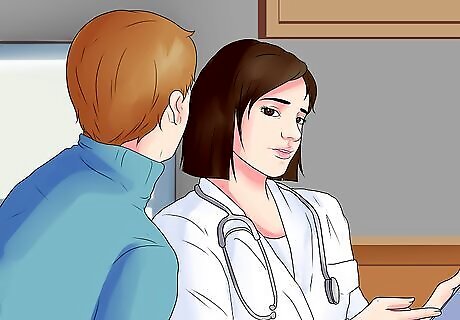
See your doctor if you are experiencing any ulcers symptoms. Ulcers are a serious condition that require medical treatment. Over-the-counter products may provide temporary relief, but they do not treat the condition. Your healthcare provider, on the other hand, can help you treat the underlying cause of your ulcer.
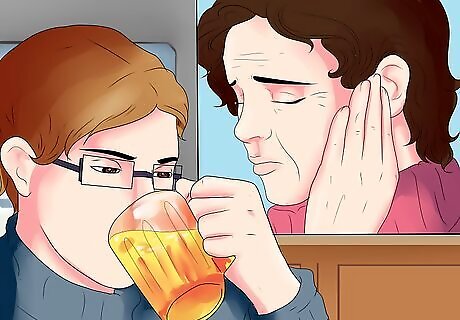
Know if you are more likely to get stomach ulcers. While stomach ulcers can present for any number of reasons, to most any individual, people most at risk to develop them include: People infected by the Helicobacter pylori (H. pylori) bacteria, or those who are more susceptible to it such as people with low stomach acid. People who regularly take non-steroidal anti-inflammatory drugs (NSAIDs) such as ibuprofen, aspirin, or naproxen. People with a family history of ulcers. People who regularly drink alcohol. People who have illnesses or diseases associated with the liver, kidney, or lung. People older than 50 years of age. People who have or had a digestive disease or illness like Crohn's disease.
Quick Tips for People Suffering From Ulcers
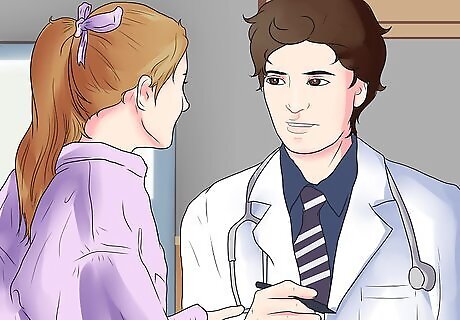
Make an appointment with your doctor. While most stomach ulcers will heal on their own, some severe stomach ulcers will need to be diagnosed with an endoscope and treated with medication. An endoscope is a small, lighted tube that your gastroenterologist will guide down your esophagus. Only your doctor can perform this. In the meantime, try some of these quick fixes before you see your practitioner.
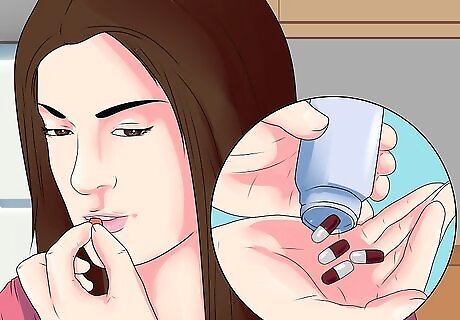
Take an acid-blocking medication. An acid-blocking medication is sometimes recommended by doctors to see if symptoms improve. That is because stomach ulcers can be caused by an imbalance between the digestive fluids in the stomach and duodenum. If you're found to have H. pylori, you will generally be prescribed a round of antibiotics that also act as acid suppressors.
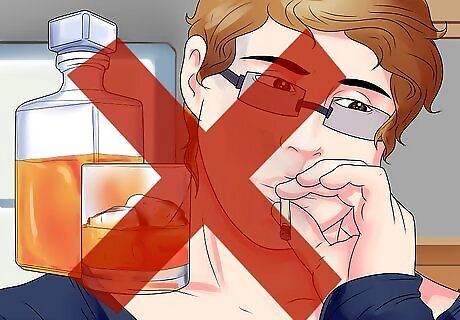
Make certain lifestyle changes. Stop smoking, drinking, and taking NSAIDs. Smoking and drinking can both cause imbalances in digestive fluids, while NSAIDs can disrupt the balance and irritate the stomach lining if taken in high dosages. Discontinue all three while you are waiting for a diagnosis from your doctor.
Eat a healthy, balanced diet. Eating more frequently or focusing on one specific food group like diary may offer momentary relief, but ultimately this could lead to your body producing even more stomach acid. Focus on eating a healthy, balanced diet rich in proteins, unsaturated fats, and complex carbohydrates. Try to incorporate fresh fruits or vegetables into every meal, choose whole grains whenever possible, and rely on lean proteins when you can. Avoid foods that cause you discomfort. For many people, this includes coffee, caffeinated beverages, fatty foods, chocolate, and spicy foods. Try to stick to a regular meal schedule. Avoid snacking late at night.
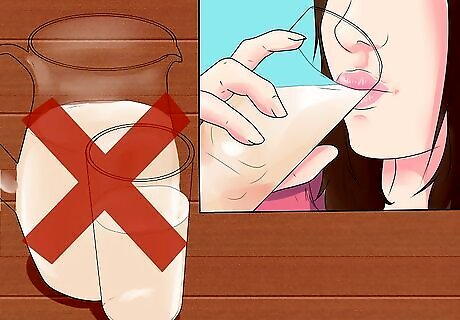
Don't drink milk. Drinking milk may provide temporary relief, but it's like taking one step forward and two steps back. Milk will coat the lining of your stomach wall for a short while. But milk will also stimulate the production of more stomach acid, which ultimately aggravate the ulcers even more.














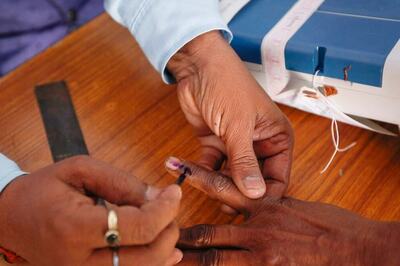

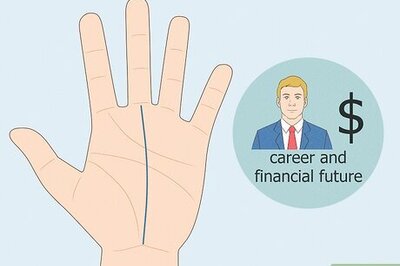

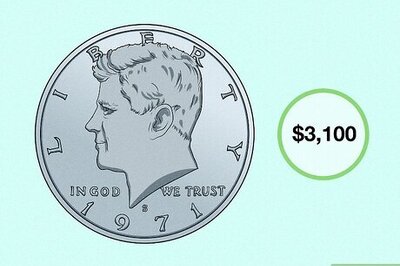

Comments
0 comment